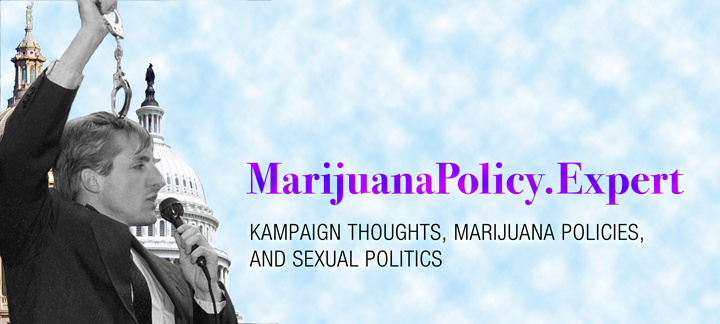 One year and one day after the convening of the 2017-2018 Congress, Attorney General Jeff Sessions finally did what everyone expected: He repealed the Obama Justice Department’s Aug. 2013 memo that essentially advised businesses in states with good marijuana laws how not to run afoul of the federal laws that prohibit marijuana absolutely.
One year and one day after the convening of the 2017-2018 Congress, Attorney General Jeff Sessions finally did what everyone expected: He repealed the Obama Justice Department’s Aug. 2013 memo that essentially advised businesses in states with good marijuana laws how not to run afoul of the federal laws that prohibit marijuana absolutely.
If there was any question relating to the one-page memo that DOJ released on Jan. 4, it was, “What took so long?” We knew that a Republican Justice Department wouldn’t just allow a marijuana policy drafted by Democratic lawyers to remain untouched for four entire years — especially not with an AG who hates marijuana almost as much as he hates marijuana users.
To review, the Obama-era prosecutorial policy of letting states determine their own marijuana policies without federal interference was put in place after my previous organization, the Marijuana Policy Project, legalized marijuana in Colorado in Nov. 2012, which was joined by Washington state one hour later.
The current AG’s memo is instructive in its simplicity, stating that the “previous nationwide guidance specific to marijuana enforcement is unnecessary and is rescinded, effective immediately … in accordance with all applicable laws, regulations, and appropriations.”
While not providing much guidance to prosecutors, the new memo provides four takeaway lessons for the rest of us.
- THE 2018 MEMO REPEALS THE 2013 MEMO.
By repealing the 2013 memo — known as the “Cole memo” after the name of its author, then-Deputy AG James Cole — DOJ’s new policy simply represents the absence of prosecutorial guidance that’s specific to marijuana. This means that our nation’s 93 U.S. attorneys should no longer consider state-level laws when focusing on crimes that involve larger quantities of marijuana or other drugs, drug and non-drug crimes involving violence, minors, international incidents, and so forth.
So regarding marijuana for non-medical purposes, prosecutors will once again view Colorado as indistinguishable from Kansas.
- MEMOS ARE THE FLIMSIEST OF THE FOUR LEVELS OF PUBLIC POLICY.
The new memo smartly reminds us that prosecutors don’t have absolute discretion — even theoretically — as there are higher powers they must answer to.
The highest power is the Constitution, which the AG’s memo neglected to mention, presumably assuming that everyone in government already knows that the Constitution is supposed to reign supreme.
Secondary are federal statutes that we generally refer to as “laws,” such as the Controlled Substances Act of 1970, which declared that cocaine and methamphetamine are better for your health than marijuana and heroin. Unlike that destructive statute, laws can sometimes be temporary, such as the annual budgets that Congress and the president are supposed to enact by Sept. 30 of each year.
The third-most-powerful public policies are the regulations that executive-branch agencies publish, including White House regulations that are known as “executive orders.” Because executive orders are weaker than congressional statutes, the president cannot unilaterally move marijuana into a safer “schedule” of drugs, as Congress already specified a process for this.
Finally, the fourth and weakest public policies are memos, such as the Sessions memo and the Cole memo before it. Presidential “signing statements” that seek to interpret new statutes also reside in this fourth category, which is a repository of documents that are not legally binding.
- APPROPRIATIONS LAWS “TRUMP” MEMOS.
One temporary law with which marijuana legalizers are familiar is Congressmen Dana Rohrabacher’s (R-CA) and Earl Blumenauer’s (D-OR) medical-marijuana amendment, which states, “None of the funds made available in this Act to the Department of Justice may be used … to prevent [states] from implementing their own laws that authorize the use, distribution, possession, or cultivation of medical marijuana.”
So while the Cole memo dissuaded federal prosecutors from subverting 29 states’ medical-marijuana laws — as well as eight states’ adult-use legalization laws — the Rohrabacher amendment gives actual legal protection to the 29 states, while giving no legal protection to any adult-use marijuana businesses anywhere.
Thankfully, AG Sessions acknowledged the Rohrabacher amendment’s relevance by including the word “appropriations” in his Jan. 4 memo.
- OUR STRATEGY REMAINS UNCHANGED.
While it might be therapeutic to complain about President Trump (who’s good on marijuana policy) and AG Sessions (who’s abysmal), our focus must be on changing laws, not memos.
Unfortunately, it’s borderline impossible to change federal marijuana laws permanently if congressional committee chairs refuse to hold hearings and votes on free-standing bills. Pivoting away from this congressional constipation, we’re able to find relief through the annual appropriations process, because Congress must — if nothing else — allocate taxpayer money to DOJ and all other federal agencies annually.
Thankfully, the Rohrabacher amendment — which we helped enact for the first time in Dec. 2014 — is the law of the land through Feb. 4 of this year, when Congress’s current funding allocations for federal agencies expire.
I’ll write more later about how Feb. 4 represents a Doomsday scenario for medical-marijuana patients. But for now, if you think that AG Sessions isn’t privately working to repeal the Rohrabacher amendment that’s currently tying his hands, you’re probably unaware that he has actually been lobbying Congress publicly, as evidenced by his letter that called for repeal on May 1, 2017.
Thank goodness his May 1 document was non-binding, too.

